#but sure. trans president before a cis woman president
Explore tagged Tumblr posts
Text
"We might have a trans woman president before we have a female president"
................my parents are...weirdly disconnected from reality.........
#like. what...what world are you living in#trans people are getting fuckin murdered all over the place for being trans#but sure. trans president before a cis woman president#you are. vastly overestimating the level of acceptance that the general public has for trans people. particularly trans women.#im so surrounded by other queer people online i feel like im surrounded by aliens offline#like i love these people but i dont even know where to start with that#i feel like im going crazy
0 notes
Text
So I want to make another analysis post on Barbie bc I saw a post yet again but I didn't want to reblog it my own opinions on it bc that might seem rude and some things in the original post are valid so here we go.
So I am not gonna invalidate trans women's opinions on the gynecologist scene, I am just going to provide my own interpretation of it as a genderqueer demigirl so take it if you will. When I was watching it in cinemas, I was like "oh Barbie got bottom surgery, good for her!" bc I felt this was a natural progression of her arc, Barbie wants to be human, Barbie wants to experience everything good and bad there is to humanity. I feel like saying "oh this movie had Barbie get a vagina bc that would make her a 'real woman'" is kind of diminishing the story here which is that Barbie has become okay with irrepressible thoughts of death, Barbie has become okay with cellulite, Barbie has become okay with aging, she now wants cellulite, to age and to eventually have her ending one day. She kind of reminds me of some trans women I know who want to menstruate if that makes any sense (this isn't out of like some obligation or whatever they just want to do it... pls don't), so when the movie was like "Barbie has a vagina now", I just went "good for her". Like Barbie became a real woman LONG before she had her bottom surgery, when she kept thinking abt death, when she cried, when she began to feel insecure about herself, when she had an existential crisis, when she saw how much love life has to offer. Before Ruth Handler even appeared, Barbie became human, she doesn't act like the other Barbies anymore. But when Ruth appared, she finally became sure, she didn't want to be an idea anymore, it is also bc her human has realised that there's nothing wrong with cellulite, nothing wrong with death and aging. Her bottom surgery did not cement her finally becoming human.
There are also some who did not like the whole meta joke of "Margot Robbie is not the kind of person to cast for this" like I don't like meta jokes either but I thought the whole point of that scene was that no matter what women do, they will never be good enough. Barbie is already so brilliant and beautiful yet she can't see that bc there are other Barbies that have won Nobel prizes, there are other Barbies that are doctors, Barbies that are presidents and if she can't be any of those then what was she made for? And the film says "isn't it good enough to just love yourself? To live? To be human?" Also, it's kind of just to show that women can never be attractive enough (I am thinking abt kpop stars getting plastic surgery and I am just like??? What??? You're already literally impossibly attractive???)
There are also criticisms of the whole "I am a man with no power, does that make me a woman?" being how cis people perceive trans people and yeah that is how they perceive us but this did not feel like a specific jab at trans people to me bc these were the same people who also went "I am not sexist! I am the son of a mother and I have a sister as well" (they also make some jokes like 'I am the mother of a son' but I think that was just Mattel trying to convince Greta to make them silly little guys <they aren't) so there's that. This could be clumsy writing as while yes these guys were funny a lot of their scenes were just kind of flimsy yknow?
There's also criticism abt the teen calling Barbie a fascist being how conservatives see left leaning people and first off I know MANY people who are like this and act EXACTLY like that, some of you reading this post probably act exactly like her. She has valid criticisms of Barbie perpetuating unrealistic body standards but she also doesn't acknowledge that Barbie is unrealistically thin is so that she looks okay and not off-putting with clothes on (since Barbie clothes aren't exactly form-fitting yknow?) but she also uses a lot of terms incorrectly. She calls Barbie, the idea, the concept itself, fascist. The company that owns Barbie, Mattel, is fascistic but Barbie isn't. It kind of reminded me how a lot of children that grew up in the global north will cling on to leftist politics but then won't educate themselves on imperialism, the detrimental effects of communism, colonialism and post-colonialism and many more and will also speak over poc and disabled people a lot (I am side-eyeing you so many of you rn)
At the end of the day, Barbie is not a perfect film by a milestone, it is still a movie approved by Mattel. But to call it a "harsh conservative corporate cash-grab" is to ignore the nuances in it, which I am seeing a lot of with you lot nowadays jfc
#barbie#barbie movie#im done. this is my brain power for the day. english is not my native tongue.#remember the lindsay ellis drama? yeah i do. she was right btw abt raya
5 notes
·
View notes
Note
It might just be me as a trans woman reading this in a trans way, but when Henry Day-Eastman talked about how every mirror he saw he was a guy and unhappy and alone. Big trans vibes. Am I reading too much of my own experience into that or was that intended? Love our vampire boy!
This is going to be... a somewhat complicated question to answer, and it'll deal with some spoilers for Eidolon Playtest Season 2, so I'm going to post my thoughts under a readmore.
For those who don't know: Eidolon Playtest is an actual play podcast I'm on where we're testing out a game a couple of my friends wrote. It's very good, you'll like it a lot if you enjoy things like "psychic battles against the President of the United States," "accidentally unionizing a demonic underclass" and "arguing about whether Adam Sandler's Click is a masterpiece in this universe or not." Also I made the soundtrack and people say that it whips ass so who am I to say otherwise?
I think you should listen to it, ideally before reading the rest of this post, because the post is going to make things sound a lot more confusing and unhinged than they actually are. I promise that all this shit makes sense if you're caught up.
So to get into Henry Day-Eastman and Harvey Stoker, I first want to touch on Harvey Godlove.
Originally, I didn't think very much about Harvey Godlove's gender or orientation very much. He started out as a very simple, straightforward character and sort of accumulated more meaningful character traits as time went on. Around 1/2 to 3/4 of the way through season 1, I decided he was bisexual because of dynamics on the show.
1. Harvey Godlove is a trans man, a decision I made in part because I saw a few people in the Discord chat who interpreted him that way, + a close transmasc friend of mine felt like it was a good fit. At first, I wasn't sure whether I wanted to make that Explicitly Canon or not, but as we got into season two, I came to the conclusion that it made a lot of sense, and that it dovetailed well with the other plot beats I wanted to hit for Henry/Harvey's character arc.
2. So, Henry Day-Eastman was created from parts of Harvey Godlove's soul and parts of Dracula's soul; the remaining parts were combined to form Harvey Faustus Stoker.
The Neighborhood works in such a way that their shared universe was created based on both Henry and Stoker's desires and beliefs. You could easily say that this implies Henry is cis; he has the body he "wants," the social role he "wants," other people see him as he "wants to be seen," etc.
But, of course, the whole point of Season Two is that the Neighborhood houses are false utopias. Henry isn't really happy with his life; he's just comfortable enough not to question it, even when he feels like trash.
3. Lisa Fratelli, an alternate version of Harvey created from his friend Christina's mental image of him, is transmasc - or maybe it's more accurate to say she "will be transmasc once she figures shit out?" It's something I don't think I've said explicitly on any of the episodes that have gone live, but I've definitely dropped some Very Heavy Hints. There's a reason she talks about hating the roles her parents pressured her into, there's a reason her Eidolon - the manifestation of her psyche - looks like a man, there's a reason she gets fixated on thoughts like "there's a version of me named Harvey" or "what if I became a cowboy."
The mirror conversation takes place between Henry and Lisa, so there's definitely transgender vibes, if that makes sense. The monologue as I conceived it was "about" a more general sense of depression, purposelessness, and being alone in the world - but like, at the end of the day, I'm a trans woman writing a conversation between two different "reflections" of a trans man. I think a transgender reading of that scene makes sense.
4. Henry ultimately decides to become a part of Harvey Godlove again, but at the end of the day, he still lived a different life. His desires were derived from Harvey's, but they weren't the same as Harvey's. Because of this, I think there's a few different ways you could read Henry!
You could read him as a cisgender man, or as "a trans person's fantasy of being cis," living out an idealized life in which his AGAB matches up with his lived experience - and yet, this life feels emptier than the one in which he transitioned, with all the challenges that entails.
You could read him as a trans man, whose obsession with "normalcy" is partly related to a desire to pass, for nobody to question who or what he is. If he doesn't stick out too much, maybe people will fucking Be Cool about it.
Or you could read him as a trans woman, someone whose desires are at once aligned with and opposed to the desires of the person he "was." Someone trapped in a role that, on paper, provides him with a lot of benefits and security, but in practice just makes him miserable.
TL;DR - I didn't necessarily intend for Henry's mirror vision to carry trans vibes, but I think it makes sense to read it as such. I'm a trans woman, Harvey's a trans man (as are all other versions of him seen in S2), that kind of subtext is going to crop up.
I hope that makes sense and I'm sorry for being so long-winded, lol. This is something I put a lot of thought into and I like to think it shows.
(P.S. Either way, Count Dracula was definitely cisgender, so Harvey still gets to make dumb jokes about how he's technically genderfluid because "sometimes he's a trans man and sometimes he's a cis man")
52 notes
·
View notes
Text
If you're a Braime shipper, you should check out Y The Last Man
So @hulu has a new show called Y The Last Man, based on a comic series. If you are unfamiliar with the premise, a disease hits the earth that wipes out every animal with a Y chromosome, with the exception of Yorick Brown (the main character) and his pet monkey Ampersand.

In some ways it is a traditional post-apocalyptic TV show (Walking Dead, Battlestar Gallactica, The 100, Jericho), with a heavy dose of explicit gender politics.
(Side note: I really have to complement the show for being smart and nuanced about the way it discusses and frames the issue of biological sex and social gender. The plight of trans men is explored early on, as is the fact that many groups of women have Y chromosomes, and were victims of the disease)
BUT, I wanted to say that one of the main plot lines of the show has a LOT of parallels to Jaime/Brienne's storyline, particularly their journey from the North to King's Landing.
~*~
So the show has basically 3 plot lines that follow different members of the Brown family - Yorick, his sister Hero, and his mother Jennifer (a US congresswoman who gets promoted to being president after virtually everyone in the line of succession is killed).
Yorick's plot line essentially consists of a road trip through apocalyptic America with a genetic scientist, Allison Mann (who is going to do research on him to figure out why he survived the plague) and Agent 355, a member of an elite militarized intelligence force who gets put in charge of guarding Yorick and keeping him safe, so he can be studied.
Allison Mann is a lesbian, but Yorick has a romantic and sexual dynamic with Agent 355, who is charged with protecting him as they go on this hazardous, harrowing journey.
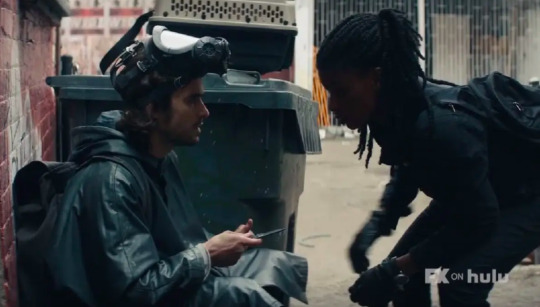
Agent 355 has a lot of Brienne in her. She is an incredibly skilled and competent warrior, and would lay down her life for this mission. She is very serious, and treats the mission with deadly seriousness. She also has a troubled past that the show is clearly going to explore more as time goes on. She is VERY closed-off and secretive at the beginning, but it is clear that Yorick is going to slowly break down her emotional barriers as they bond along their journey. (Sound familiar?)
Yorick is less like Jaime than Agent 355 is like Brienne. He is not a warrior of any variety. However, he does cause Agent 355 a great deal of trouble along the way, more through incompetence than through any deliberate effort. Her effort to try to keep him in line reminds me more than a little of Brienne's efforts to stop Jaime from causing problems early on in their journey.
But the strongest parallels between Jaime and Yorick actually have more to do with their circumstances than their character traits. Yorick is the son of a powerful political figure who has a lot of enemies, and a lot of people plotting against her (one of the other main plot threads of the show). He is an important asset, but he's also in danger partly because of who his mother is, and his connection her. Hiding that Yorick is a cis man is important, but hiding his familial connection to Jennifer Brown is debatably even more important in keeping him alive.
Additionally, Yorick in the beginning is most concerned with trying to track down his girlfriend, whom he was separated from just before the plague struck. He still holds a lingering attachment to her in early episodes. However, it is pretty obvious he is starting to develop feelings for Agent 355, and I suspect one of the conflicts he's going to have to wrestle with as the series continues is his feelings for the woman he was in love with before, and the woman he is growing more attached to as she protects him through their treacherous journey.
~*~
Obviously, it's not an exact parallel. There are significant differences, for sure. But I realized recently as I was watching the show that it was starting to fill that same gap for me that Braime does/did. So i thought I would share that with you all, if you are looking for something new in that same broad vein.
(Also, just generally, I think the show is well written and well-done. Not perfect, but solid B+ work most of the time. And it has occasional glimmers of greatness that I think could be expanded if the show is allowed to continue and really find its footing)
#Braime#jaime x brienne#y the last man#Yorick Brown#Agent 355#Game of Thrones#Jaime Lannister#brienne of tarth
45 notes
·
View notes
Text
Previewing the 2024 Democrat Primary
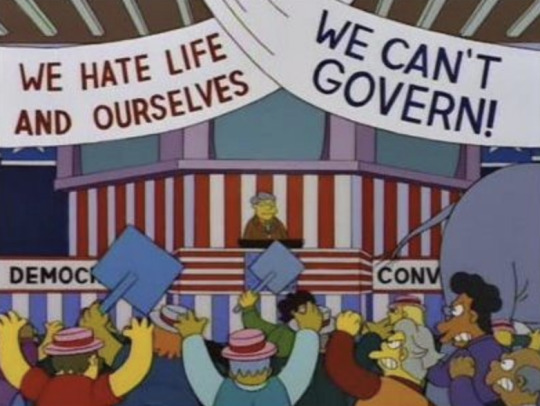
Within a couple weeks of his being sworn in, just about every person on earth will wish Joe Biden was no longer president. Sure, the few surviving John B. Anderson voters will be thrilled to see 4 years of crushing austerity and half-assed attempts at Keynesian stimulus. But most people will begin dreaming about a brighter future.
Good news! The 2024 Democratic primary field is going to contain dozens of options. Bad news! They are all going to be disgusting piles of shit.
The “top tier”
While it’s too early to do any handicapping, these are the candidates the media will treat as having the most realistic chances of securing the nomination.
Kamala Harris

Kamala did not win a single primary delegate in 2020. This is because she dropped out before the first primary, and that was because no one likes her. She has no base beyond a few thousand of twitter’s most violent psychos. Her disingenuousness approaches John Edwards levels: any halfway incredulous person can see immediately beyond her bullshit. She has no principles whatsoever, and while that may be par for the course for Democrats, she lacks even the basic politician’s ability to intuit anything that might, hypothetically, constitute a principle.
Even better: she is an awful public speaker. She sounds like how a talking dog would speak if he were just caught stealing people food off the kitchen table. She communicates in weird grunts and faux sassy squeaks, which is how she imagines real black women sound like, but something about her is unable to sell the bit. She begins her sentences in halfhearted AAVE, stops and panics halfway through as she realizes that maybe this sounds fake and offensive, and then reminds herself oh wait, no, this is okay since I’m black. This doesn’t happen once or twice per speech. This is how every single sentence sounds.
Kamala is like Nancy Pelosi in that no sketch show will ever impersonate her correctly, because anything that came close to authenticity would be considered far too cruel. This might benefit her in the primaries, as she exists in the minds of Democrats as someone and something she absolutely is not in reality. Nominating her would be like allowing your child’s imaginary friend to attempt to drive you to the store.
Andrew Cuomo
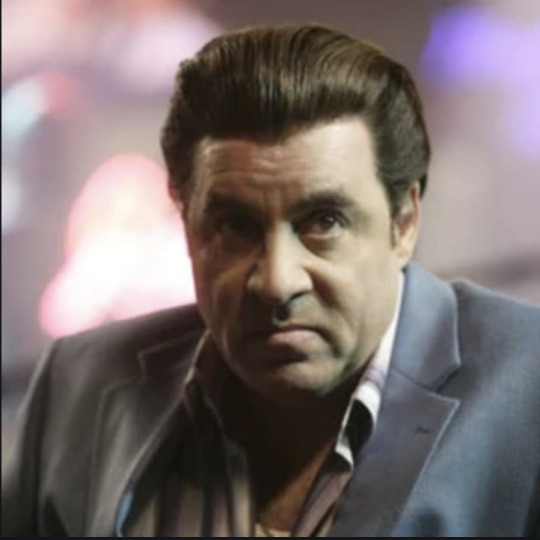
Easily one of the 50 worst people alive, Cuomo has a solid chance because Democrats, same as Republicans, are unable to differentiate between electability and self-serving ruthlessness. Cuomo used the deadliest public health crisis in American history as a pretext for cutting Medicaid and firing 5,000 MTA workers, and his approval rating increased. New York Dems are little piggies who love eating shit. If we assume that the political media will continue their habit of refusing to discuss the legislative history of right wing Democrats, Cuomo might well cruise to the nomination and then lose to literally any human being the GOP nominates by an historic margin.
Joe Biden
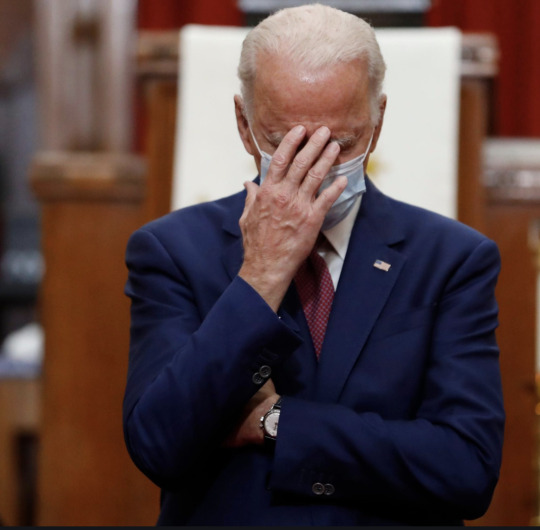
The party loves him because he is a right wing racist. “Progressives” tolerate him because black primary voters over 40 supported him, and their opinion is supposedly a magic window into god’s truth. Everyone else can tell he is manifestly senile. I don’t put it above the DNC to pick a candidate who is in horrible health, dying, or even dead--whatever the financial sector wants, they’ll get. But I would be shocked if his approval rating is above 39% by mid-2023, and by that point deep fake technology will be advanced enough they’ll put out a very lifelike video in which the Max Headroom version of Joe explains he’s proud of his accomplishments--that budget’s almost balanced already--but, man, I gotta abd--I gotta abdica--, uhh, I gotta, I, uhh, I gotta move down, man.
Wild Cards
These candidates would have all have a chance if they ran, but they could all much more easily retire to Little Saint James off of kickbacks they’ve gotten from Citibank and I.G. Farben.
Rahm Emanuel

Rahm is going to receive some hugely influential post in the Biden administration. Let’s say he becomes Secretary of Education. His signature achievement will be replacing all elementary school teachers with Amazon’s Alexa, which saved the taxpayers so much money we were able to quadruple the number of armed police officers we put into high schools. This will give him several thousand positive profiles on network news programs and the near-universal support of the Silicon Valley vampires who will own 99% of the country by the time Biden’s term ends. They will use their fancy mind control devices to convince geriatic primary voters that Rahm’s the one who will bring Decency back to the white house. His candidacy will be the paragon of wokeness, as expressing concern toward the fact that he covered up the police murder of a black guy will get you called a racist.
Rahm has a bonus in that Jewish men are now Schrodeniger’s PoC. When they are decent human beings, they are basic, cis white men who are stealing attention from disabled trans candidates of color. When they love austerity and apartheid, they become the most vulnerable people of color on earth and criticizing them in any way is genocide. No one will be able to mention a single thing Rahm has ever done or said without opening themselves to accusations of antisemitism, and that gives him a strong edge against the rest of the field. The good news is that an Emmanuel candidacy would result in over 50% of black voters choosing the GOP candidate--which, I guess that’s not really good but it would certainly be funny.
Gavin Newsom
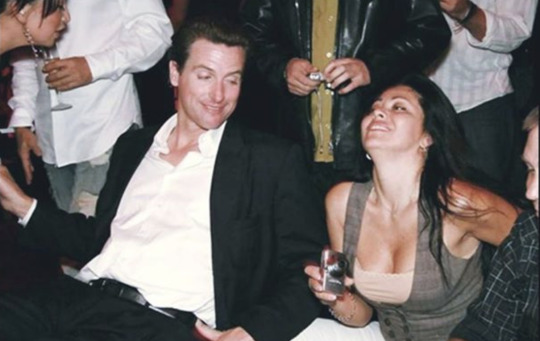
Newsom is every bit as feckless as Cuomo, but he doesn’t put off the same “bad guy in an early Steven Segal movie” vibes. He will mention climate change 50 times per speech and no one will bother to mention how he keeps signing fracking contracts even though his state is now on fire 11 months of the year. If anything, this will be spun into an argument about how he’s actually the candidate best suited to handle all the water refugees gathering on the southern border. Look for his plan to curb emissions by 10% by the year 2150 to get high marks from Sierra Club nerds. He’s also a celebate librarian’s idea of what constitutes a handsome man, so he’ll have some support from the type of women who claim to hate all men.
Larry Summers

I mean, why not? Larry, like most members of the Obama administration, has politics that are eerily similar to those of Jordan Peterson. In normal circumstances, this makes a person a dangerous fascist who should not be platformed. But if that person has a D next to their name this makes them a realistic pragmatist who has what it takes to bring suburban bankers into our tent. If current trends in Woke Phrenology continue apace, Larry’s belief that women are inherently bad at STEM will be liberal orthodoxy by 2023, and his dedication to the Laffer Curve could see him rake in massive donations. Seriously, I’m not kidding: cultural liberalism is now fully dedicated to identity essentialism and balanced budgets. Larry is their ideal candidate. If he were black and/or a woman, I’d put him in the very top tier.
Jay Inslee

Unlike Newsom, Inslee’s attempt to crown himself the King of Global Warming won’t be immediately derailed, since his state is only on fire because of protestors. This, however, poses a different problem. He’s going to be a good test case for the Democrat’s uneasy peace with the ever increasing share of the electorate who become catatonic upon hearing a pronoun. On the one hand, you need to take their votes for granted. On the other hand, they’re not like black people or regular gays: most voters actively, consciously despise wokies, and associating yourself with them will ruin a campaign even in deep blue areas. There’s still gonna be riots in a year. Biden’s gonna announce the sale of all our nation’s potable water to the good folks at Nestle and some trans freak named Sasha-Malia DeBalzac is going to use that as an opportunity to sell their new pamphlet about how it’s fascist to not burn down small businesses. No matter what Inslee does in response, it’ll end his career.
AOC

I’m not one of those “AOC is a secret conservative” weirdos, but I am aware enough of basic reality to know she has zero chance of coming close to the nomination. The right and the center both regard her as a literal demon. The party is already blaming her for the fact that a handful of faceless Reagan acolytes failed to flip their suburban districts even though they ran on sensible pragmatic proposals like euthanizing the homeless. The recriminations will only get more unhinged when the Dems eat shit in the 2022 midterms. She will be a Russian, she will be white male, she will be a communist, she will be a homophobe: any insult or conspiracy theory you can name, MSNBC will spend hours discussing. Her house seat challenger will receive a record amount of support from the DNC in 2024 and it’ll be all she can do to remain in congress.
Larry Hogan
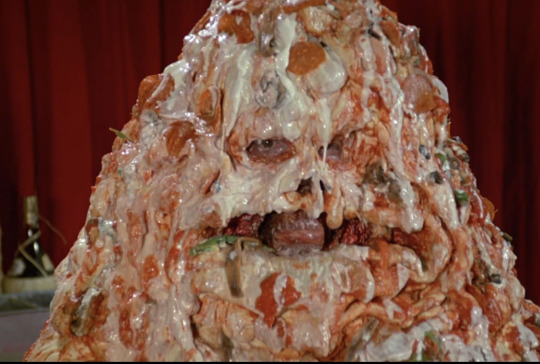
Don’t be dissuaded by the fact that he’s a Republican. Larry is the DNC’s ideal candidate: a physically repulsive conservative who owes his entire career to appealing to the most spiteful desires of suburban white people. He’s an open racist in a material sense--if you’re old-school enough to think racism is a matter of beliefs and actions, rather than the presence of cultural signifiers--but his is the beloved “never Trump” style of racism that Dems covet. He’s also a Proven Leader who thinks the role of government should be to finance the construction of investment property and give police the resources they need to run successful drug trafficking operations. Few people embody the Democrat worldview more than Larry.
The Losers Bracket
These people will have at least a small chance due solely to the fact that the Democrats love losing. They have lost in the past, and in the Democrat Mind that makes them especially qualified.
Joe Kennedy
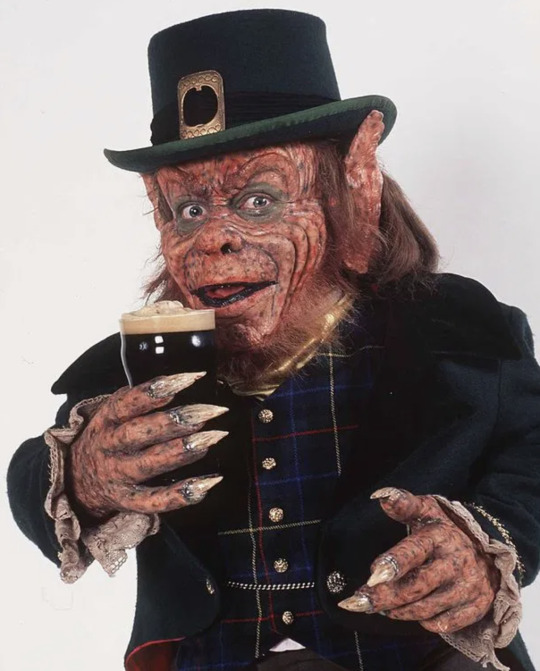
The man looks like a mushroom-human hybrid from a JRPG. Trump proved that physical hideousness need not doom a presidential bid, but a candidate still needs some kind of charm or oratorical abilities or, god forbid, a decent platform. Joe aggressively lacks all of these things. A vanity campaign would be a good way to raise money and perhaps secure an MSNBC gig, so Joe might still run.
Mayor Pete
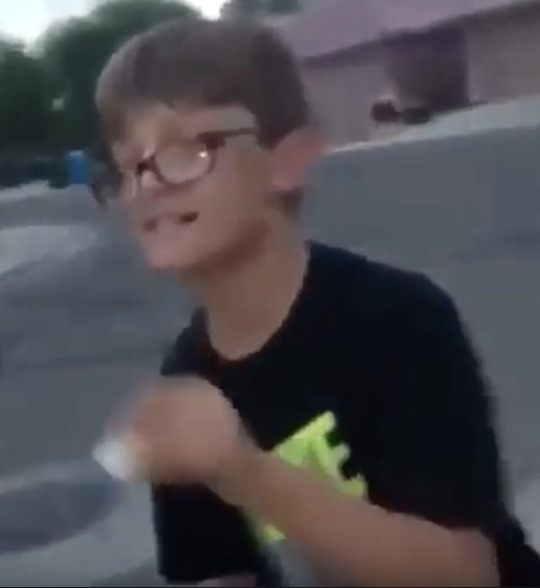
I am 100% convinced that Pete’s 2020 run was a CIA plot meant to prevent working class Americans from ever having a chance of living decent lives. I am also 100% aware that Democrats are dumb enough to enthusiastically support a CIA plot meant to prevent working class Americans from ever having a chance of living decent lives. If we have some sort of military or terror disaster between now and 2023 the Dems are sure to want a TROOP, and wait wait wait you’re telling me this one is a gay troop? Holy hell there’s no way that could lose!
Stacy Abrams
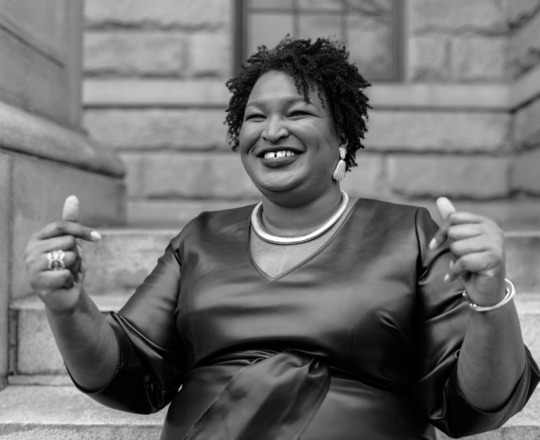
Never underestimate the power of white guilt. She lost the gubernatorial race to Gomer Pyle’s grandson, and her spiritual guidance of the Dems saw the party lose black voters in Georgia in 2020. Nonetheless, she is regarded as a magic font of fierceness within the DNC. She might stand a chance if she can establish herself as the most conservative non-white candidate in the field, but there’s going to be stiff competition for that honor.
Elizabeth Warren

Liz is probably angry that the party so shamelessly sold her out even after she was a good little girl and sabatoged Bernie’s campaign for them--yet another example of high ranking US government officials reneging on their promises to the Native American community. Smdh. The fact that this woman hasn’t been bankrupted a dozen times over by various Wallet Inspectors genuinely astounds me. So Liz is probably going to run again, and her campaign will be even sadder the second time around.
It might surprise you to hear this if you don’t work at a college or NGO, but Liz diehards actually do exist. She’ll get even less support this time because there will be no viable leftist in the field for her to spoil, but she’ll still hang in long enough to make sure the very worst possible candidate beats out the second worst possible candidate. Maybe she’ll fabricate a rape accusation against Sherrod Brown. Maybe she’ll spend her entire allotted debate time doing a land acknowledgment. With Liz, anything is possible--so long as it ends in failure.
Amy Klobuchar

Amy was the most bloodthirsty of the 2020 also rans. She will double down on the unpopular failures of the Biden administration, explaining that if you weren’t such a selfish idiot you’d love the higher social security retirement age and oh my god are so such a moron you think you shouldn’t go bankrupt to get a COVID vaccine? There’s a non-unsubstantial segment of the Democratic base that’s self-hating enough to find this appealing, but it won’t be enough to make her viable.
Martha Coakley
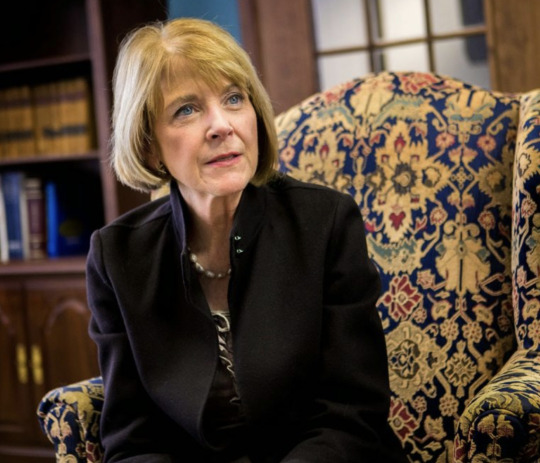
She lost Ted Kennedy’s senate seat to a retarded man who was pretending to be even more retarded than he actually was. Then she lost a gubernatorial race to a guy who openly promised Massachusetts voters that he would punish them for electing him. Her record of failure is unparalleled, making her perhaps the ideal Democrat standard bearer for the twenty twenties.
33 notes
·
View notes
Text
I'm bringing this back in light of recent events. This applies to political movements.
I've posted a lot about HRT, but I have also posted about birth control. Anyone with a functioning uterus should make sure that they have a solution to maintaining steady birth control if their supply is disrupted. From the other side, consider a vasectomy as well, especially if you have a steady partner that you don't want to have kids with.
Cis women's reproductive freedom is, in my mind, a unified cause with transgender healthcare. The infringement of women's bodies, cis and trans, is established through the same oppressive logic, through the same oppressive institutions, and directed at those who are seen as anything less than cishet men- a category which includes any woman and any trans person.
There is a reason that TERFs largely do not talk about reproductive freedoms. Arguing for bodily autonomy would also result in a precedent that secures transgender healthcare. The United States legal system is heavily based on court precedent argued on fundamental rights. Yes, the courts are conservative right now. But that only drives home the point that these causes need to be unified and need to be argued as one.
Feminism will not find victories by eliminating trans people, and trans liberation will not find victories without cis feminist allies. We are stronger together.
As I've said many, many times before: universal, permanent bans on birth control or HRT, written into law, are unlikely. However, the only reason I am saying this is because people fight. And people fight together. The American Right is constantly, actively infringing on people's rights, and then being beaten back. More often than not, those fights are won. But they have to be fought. If the first Trump presidency felt "okay" to you, this was why. Planned Parenthood, the ACLU, and more will need unified support in the coming years.
Do I have a playbook to support and activism? God no. I'd love to hear other people's advice, though. But keep an eye on which fights are happening, and support the organizations fighting them.
We'll be okay. We'll be tired. But we'll be okay.
Hey I know we're all tranny supreme here but transfemmes, do NOT let terfs turn cis women against you
748 notes
·
View notes
Text
White House press secretary Jen Psaki cut off a Fox News Radio reporter who asked about the president’s gender discrimination order at Tuesday’s daily media briefing.
The exchange with Fox News Radio White House correspondent Rachel Sutherland comes a day after Psaki mocked another reporter from the same network who asked about “green jobs” creation in the wake of the canceled Keystone XL pipeline.
Sutherland asked about concerns voiced by some critics of the order, who say it will allow school-aged transgender girls to participate in girl’s sports leagues — potentially presenting an unlevel playing field.
“What message would the White House have to trans girls and cis girls who may end up competing against each other,” Sutherland asked. “It’s sparking some lawsuits and concern among parents, so does this administration have guidance for schools in dealing with the issue arising over trans girls competing against and with cis girls?”
“I’m not sure what your question is,” Psaki replied.
Sutherland then continued, “The president’s executive order has…” before being cut short by Psaki.
“I’m familiar with the order, but what was your question about it?” the press secretary shot back.
“The question is, does the president have a message for local school officials in dealing with these kinds of disputes that are already starting to arise between trans girls who are competing against cis girls, and a level playing field, particularly in high school sports when it leads to college scholarships,” Sutherland said.
“Is there any kind of messaging or clarification that the White House wants to give on the executive order?” she added.
“I would just say that the president’s belief is that trans rights are human rights, and that’s why he signed that executive order,” Psaki said. “In terms of the determinations by universities and colleges I would certainly defer to them.”
I don't like Fox "News" but I glad one correspondent asked how the order will impact women. Of course the woman who cut her off went to school while Title IX was in place so she didn't have to compete with men, if Psaki ever played women's sports. But why should Psaki care about girls losing sports scholarships when she attended schools in Greenwich, Connecticut, one of the wealthiest school systems in the nation. And her parents sent her to a private elementary school so I don't think she was stressed about affording college.
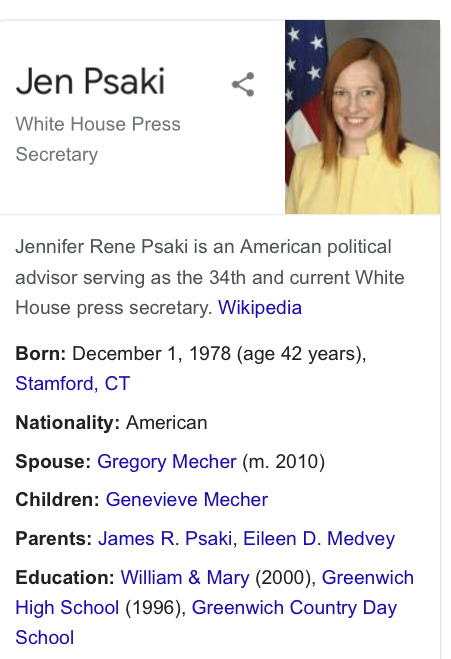
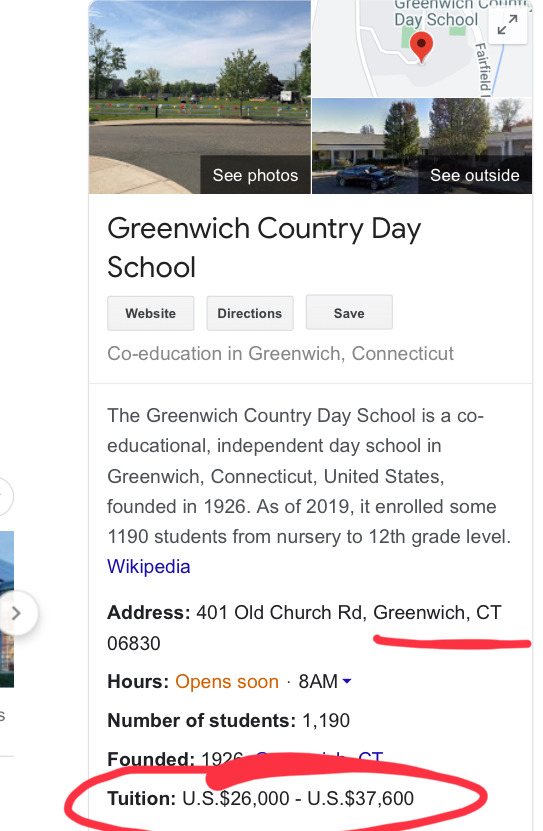
4 notes
·
View notes
Note
so, I've been idenfying as a lesbian for almost one year, I'm just 15 and I probably don't know anything but I'm completely sure about my attraction to women and about my lack of attraction to men who look/are cis straight, i don't want to be transphobic or biphobic with my labels and the word I feel the most comfortable with is lesbian but im sometimes attracted to nb people/trans men(who don't look cis) and i don't know if it's hurtful for trans people to call myself a lesbian if my attraction is sometimes like that, should I call myself bi ? also, if I said bi, everyone would understand "she likes men and women" and i don't like men, I mean, if you look/act like a man im surely not attracted to you and right now I'm kind of confused about what the labels even mean
I appreciate your concern about these things and trying to find answers. I’m not going to tell you what label you can or should be using but there are some things you should know and be aware of when picking a label for yourself.
Regarding non-binary people: some nb people would not mind a lesbian being attracted to them, whereas other non-binary people would feel misgendered by that. So when you find yourself attracted to a non-binary person and you two actually get close then there needs to be a conversation about this. How do they feel about you identifying as a lesbian? Are they okay with it or does it constantly feel like you think of them as a woman? If your friends/family know you as a lesbian does that by extension mean they will always assume your non-binary partner is a woman? and so on.... Also note that bisexuality does NOT mean “attraction to men and women”. It means “attraction to more than one gender”. So someone who is attracted to women and non-binary genders (but not to men) can still identify as bisexual. Unfortunately there are many misconceptions about bisexuality and a lot of people still think it means just men and woman or just cis people. But you should choose a label based on what describes your sexuality well and makes you feel good - regardless of what false ideas the mainstream society has of that label. If we would have to wait for society to catch up on the right definitions of all our labels before we could use them then we’d all never get to pick a label. Not to mention that meanings can change over time. But I get that you don’t want people to assume you are attracted to men, some people identify as “bi lesbian” to express that they are attracted to multiple genders but not to men. Maybe that’d be an option for you. Or just saying you are “queer” which is a nice vague label that can mean any kinds of things along the line of “not straight” (or “not cis”).
Regarding trans men I honestly think you should educate yourself further on trans issues and gender. Because you say you are attracted to “trans men who don’t look cis” and that you are not attracted to people who “act/look like men”. I’m sure you don’t mean to harm anyone or to offend. But in saying those things you pretty much imply that you don’t think of trans men as real men. Even if they look feminine or are closeted - they are still men. And unless a trans man has a lot of internalised transphobia, I don’t see how any of them would really be okay with a lesbian saying she’s attracted to them. (There are trans men who date lesbians but those relationships are basically existing on a foundation of misgendering the trans man which is not a good thing.) Whatever a trans man “acts” like, that is the behaviour and personality of a man. Whatever a trans man looks like, that is the look of a man. And that being said: not all cis men look the same or act the same; some cis men have feminine features and not all cis men are the stereotypical fuckboi president of toxic masculinity-ville. But you only make this distinction regarding trans men? That ends up sounding like you don’t view trans men as men. You cannot say “I am not attracted to men” and then follow it up with “but I am sometimes attracted to trans men”. Those two statements cannot co-exist. Either you are attracted to men or you are not. By saying you are attracted to trans men but not cis men you are basically saying that trans men and cis men aren’t the same gender and you still think trans men are women.
Again, I know you mean well, so don’t take this as me talking down on you. I’m just trying to explain where you should dig a little deeper and learn more because I assume a lot of this is just coming from a lack of knowledge. It’s normal to not ~know~ all these things right away and we all sometimes make mistakes. Labels, sexuality, gender... those can all be complicated and sometimes even seem contradictory.
Always keep in mind that a label is supposed to fit you - not the other way round. If “lesbian” is the one word that seems right to you then by all means - keep it! But know that you can’t expect every non-binary person to be okay with this and if a non-binary person expresses that they are not comfortable with a lesbian being attracted to them then you either gotta change your label (to bi, for example) or not make any more advances towards that person and move on. And you should rethink how you view trans men and transness in general.
Maddie
6 notes
·
View notes
Note
Could you do a small headcannon for the yotsu's parents? Please I need more content of them on the internet
i sure can! it’s under the cut bc i uhh talk a lot. “small” headcanon... sorry.
we know that higuchi’s father is jiro higuchi, president of yotsuba heavy industry. i assume that this is some sort of subsidiary of the yotsuba corporation, although i honestly don’t know much about that kind of thing? either way, it deals with the manufacturing of large items in bulk. i don’t see his father as very involved with kyosuke’s life at all, especially when he was younger; he was more concerned with kyosuke’s decorum than anything else, but was never very involved in his upbringing. his mother was more involved. she was a temperamental woman with a bit of a drinking issue; she was also younger than jiro and married him primarily for money. kyosuke isn’t particularly close to either of them and secretly wishes he could’ve been more rebellious as a teenager.
namikawa’s father is the head of the u.s. division of yotsuba, and that’s all we know about his family. i imagine that his parents were actually fairly close and did have a genuine relationship (wow)! they pretty much trusted him to handle himself, so he had a fair degree of freedom as a child and teenager. reiji came out to them as trans when he was very young (probably towards the end of middle school), and his parents were very supportive; in fact, it’s partially due to his father’s influence that very few people in the company (or the world at large) are aware that reiji isn’t a cis man. despite this, reiji doesn’t have very much respect for his parents, his father in particular, and more or less ignores his parents’ existence when he can.
ooi’s father works for the ministry of defense according to the manga, but i actually headcanon this to be his step-father. his biological father was a morally rigid man who passed away when ooi was in junior high. his mother remarried not long afterwards to takeshi’s step-father, who was already a close friend of hers; she mainly did this to give takeshi another parental figure and to keep the family financially stable. she and takeshi are very close – probably the closest out of any of the yotsubas and their parents. he’s on good terms with his step-father, but they’re not close.
i’m going to refer to mido w she/her pronouns and the name ayame bc this is a headcanon post and i will headcanon as i please. her father, eigo mido, is a member of the house of councillors, so basically a politician; this is actually referred to outside of their manga profiles, when higuchi asks ayame to call him up and get him to stop the sakura tv broadcast. ayame gives him a decisive no on that and looks a bit annoyed – and in the context of canon, she’s really just annoyed about higuchi calling her up to ask this of her, but i do also headcanon that her relationship with her parents isn’t that great. they pushed her very hard to succeed throughout her childhood and were more focused on her academics and future career than actually being good parents, so their relationship with her was cold and distant. she never felt like she could live up to their expectations and they were never very understanding people; she isn’t out to them in any capacity and their relationships as adults is extremely muted. she’s not fond of them and they don’t reach out to her.
takahashi’s father, karazo takahashi, is the president of the japan financial times, which i assume is some sort of financial journal / newspaper? aside from ooi, eiichi probably has the best relationship with his parents overall. karazo and his mother had a bit of a rocky relationship when eiichi was growing up, but he gets along with each of them and they’ve mostly resolved their issues. karazo has a bit of a smoking habit and talks too loudly; his mother is more soft-spoken and perceptive. they’re very traditional people, but they’re decent company.
shimura is a bit of an exception to the rule here in that we’re given absolutely no information about his father aside from the fact that he wasn’t raised by one; according to the manga profiles, he was raised by a single mother. my headcanon is that his parents were unmarried and, in fact, not in a very committed relationship; he was never really supposed to happen. his mother was a somewhat unstable individual with a lot of unhealthy habits and an addictive personality, and his father bailed on her a few months into the pregnancy. suguru’s mother was extremely unprepared for motherhood, especially on her own. she was able to bring in enough money to keep them afloat, and her family (especially her sister) contributed as well, but they still had a difficult time keeping food on the table, and she treated suguru very poorly. like, very poorly. he cut off contact with her almost entirely when he left for college, and she passed away around when he began working at yotsuba.
both of kida’s parents are anatomy professors! that’s all we know about them. i headcanon that they actually met because they were studying at the same college and took a lot of classes together. they’re very logically-minded people; his father is a bit more sentimental than his mother, but even he isn’t very. masahiko was exposed to a lot of things about their field of study when he was little, so he was pretty impervious to “gross” stuff as a child and learned not to be freaked out by gore. they were also very strict with him, though, and really a bit repressive. he isn’t close to either of them anymore, but their relationship with him is certainly not the worst of the yotsubas.
and now we get to hatori’s parents. his dad, dainosuke yotsuba, is the big man himself, the president of the yotsuba group! since his name is also the name of the company, i’d imagine that he inherited his position from his father or … something like that. arayoshi is also canonically an illegitimate child, however, so we know that mr. yotsuba is a bit saucy himself. i’d imagine he’s married, but not to arayoshi’s mother, and had sired a child with his wife before arayoshi was born, although they didn’t go into the business field. his presence in arayoshi’s childhood was practically zero, although he kept him and his mother provided for financially; he has far more interaction with him as an adult than he did when he was a child, and that’s only because arayoshi works for him. their relationship is professional and pretty damn painful to watch because of how stilted it is. yotsuba also never really stopped with the whole extramarital affair thing and is having a bit of a fling with reiji right now, oops. as for arayoshi’s mother, she was pretty distant from arayoshi; she never really planned to have kids and mostly let him do his own thing. they’re still in touch; she finally married while hatori was in college, and her husband is a decent guy.
#sorry i kept you waiting anon! this was fun to write i love Yotsuba Lore#Yotsuba#Kyosuke Higuchi#Jiro Higuchi#Reiji Namikawa#Takeshi Ooi#Shingo Mido#Eigo Mido#Eiichi Takahashi#Karazo Takahashi#Suguru Shimura#Masahiko Kida#Arayoshi Hatori#Dainosuke Yotsuba#asks#anon
7 notes
·
View notes
Text
so... i’ve mentioned before a couple of times that i’m slowly (very, very, very slowly) working on my own original stories. and... well, the cast is pretty diverse (which makes sense, since i want to be a diverse fantasy author, duh). since i am but one person, i haven’t lived all of their experiences, and i’d love it if anyone had tips? hell, even for the experiences i have lived; i’m not turning down any advice.
anyway, here are the main characters:
Lev Abulafia– 15; half-Ashkenazi, half-Sephardi; raised in a fairly secular household (mom wears a tichel because she wants to, not because she’s super orthodox; they only really go to the local synagogue for Rosh Hashanah; etc.); autistic; has a crush on Aabir; lives with his mom and sometimes with the Wen family, who’ve essentially been actual family since before Lev was born
Meiling Wen– 15; at least half-Chinese (only met her dad); Lev’s sister and best friend; has known she was a girl since she was two; mentally ill (haven’t quite decided on a diagnosis yet, for multiple reasons, but psychosis is involved); celebrates the Jewish holidays but is uncomfortable calling herself Jewish; pretty nice but also lowkey loves sassing her siblings
Xiuying Wen– 22; half-Chinese (shares a dad with Meiling); Olympic gymnast and martial artist; diagnosed with ASPD at age 19; is the only person allowed to call Meiling “Mei” (because Meiling was afraid to ask her not to when she was younger and now she’s just used to it); likes partying and booze; stopped doing anything beyond weed at 21; pansexual and polyamorous; not super reliable but relatively self-aware; unlike Meiling, she does consider herself Jewish, since she was raised with Jewish holidays and culture as a major part of her life, even though she isn’t religiously or ethnically Jewish
Aabir ibn Isaiah al-Hashimi– 15; father is Sunni and mother is Shia (may change this bc I definitely don’t want to start anything and I’m not super educated on Sunni-Shia relations yet); has an older sister; bisexual; best friends with Thomas, even though no one can figure out why; believes that there is good in everyone, which leads to him trying to help people he sees “going down the wrong path” (like Thomas); plays basketball
Sandhya Ghatak– 16; born in Tripura, India and moved to the States at age 5 because her doctor was moving; has four arms (hence why her parents moved with her doctor); speaks Bengali, Hindi, English, and a little bit of Kokborok; closeted lesbian; dating Alex; fire powers (have to learn more about Hinduism and Agni before I go into more detail about that tbh); really loves makeup but is also very aware of where she buys it from, and is very, very clear about why she wears it (for herself, no one else); student council vice-president; straight-A student; very popular and probably the prettiest girl in the school; high anxiety and probably some other mental illness but I haven’t decided what yet
Alex(a) Howe– 16; closeted trans lesbian; was raised by super liberal parents and is hyper aware of his privileges; only out to Sandhya, so mostly uses he/him pronouns; doesn’t have a transphobic family but is choosing to remain closeted because he wants to be a professional football player; doesn’t like spicy food but is trying to increase his tolerance to impress Sandhya’s parents; had trouble saying Sandhya’s name at first so he practiced over and over again until he got it right; doesn’t use makeup himself but is pretty knowledgeable about it bc of how much his girlfriend likes it; pretty intimidating at first sight but honestly a giant teddy bear; learning Bengali; became friends with Sandhya in kindergarten and started dating her in high school
Jess Cooper– 15; nonbinary black teen; lives with their father and younger brothers; older half-‘sister’ went missing seven years ago; spends a lot of time working with their pastor helping out charities; PTSD from the death of their mother and SPD (Schizoid Personality Disorder - a “secret schizoid”); befriends Thomas after he learns why Aabir befriended him and tries to help him become a better person; doesn’t bind bc they can’t afford a binder; works two part-time jobs to help pay for younger brother’s medical expenses; sexuality currently undecided (I was going to have them be asexual, but I want to make sure I’m not stereotyping people with SPD before I finalize their sexuality)
Thomas Weaver– 15; lives with his abusive dad and younger half-sister Sarah; cis, white, poor, straight, Catholic, and super bigoted; only friend is Aabir; starts off as antagonistic until he overhears Aabir telling Lev and Meiling that he only befriended Thomas because he realized that Thomas fit the profile of a potential school shooter; becomes depressed and lashes out until Jess confronts him and he breaks down in front of them; character arc revolves around unlearning toxic behaviors, accepting others, and open-mindedness; develops a crush on Jess which leads to internal conflict when he realizes he sees them as a girl and therefore hasn’t come as far as he’d first thought
Sarah García Weaver– 6; Thomas’s younger half-sister; has lived with Thomas and his dad for since she was 3 when her parents died in a car accident; half-Mexican on her father’s side; often used by father and brother as “I can’t be racist” playing card; too young to really understand much; likes cars but plays with dolls bc her stepdad thinks cars are for boys only; wants to be a train conductor when she grows up
Riley Cooper– 21; Jess’s older half-brother who ended up in another dimension when he went to what was supposed to be a meeting for closeted trans teens; left before either he or Jess came out, so both referred to the other as “my sister” until they met up again; mother was a white woman from a racist family who got disowned for dating a black man and was hit by a car during a panic attack when Riley was 4; considered Jess’s mom to be like a second mother and was heartbroken to learn she’d died while he was gone; bisexual; ends up in a relationship with Xiuying and Luca; transitioned via magic while missing and worked as a soldier so he kinda looks like he can bench-press a tank
Luca Finley– 21; half-Romani, half-Native Hawaiian; was raised by Roma mother after other mom (I think the word is ‘Māhū’?) was killed in a hate crime; wants to learn about Shaktism but doesn’t have the resources to do so; bisexual; works as a bartender in a club Xiuying likes to go to; ends up in an open relationship with Xiuying, which Riley eventually becomes part of
there are other characters as well (Mr. Wen, Ms. Abulafia, Joe Weaver, Mr. Cooper, Pastor Kim, Pastor Kim’s wife, etc., but these guys are the main characters + Sarah - I’d put Jess’s younger brothers here too, but... this is already a lot of words, and also Marcus and Antoin are both walking spoilers)
#writing help#my ocs#lev abulafia#meiling wen#xiuying wen#aabir ibn isaiah al-hashimi#sandhya ghatak#alex howe#jess cooper#thomas weaver#sarah garcía weaver#riley cooper#luca finley#joe weaver#marcus cooper#antoin cooper#pastor kim#any help or advice would be fantastic!
12 notes
·
View notes
Link
Found this Time Magazine cover story in the waiting room for our (queer) family doctor (and lots of other doctors) (next to the trans clinic though, where our cousin is about to get their first T shot!!!!!!!).... It starts out, "In Park City, Utah, students are lining up at a local high school to get their locker assignments for the semester. "Extracurricular clubs have set up tables to attract new members. It's only midday, but the Gay-Straight Alliance, a group with outposts at about a quarter of American secondary schools, already has 47 names on its sign-up list. "Sitting behind piles of rainbow-colored paper cranes -- a hot fundraising item -- the group leaders are counting the different identity labels they've encountered. "Sure, there's lesbian, gay, bisexual, transgender. But there are more. Way more. "'There are people who are pan,' says 17-year-old club president Grace Mason, meaning pansexual. There's also aromantic, asexual, genderqueer, two-spirit, and on and on." Other amazing nuggets: * Bud Light did an ad saying that beer was for "people of all genders" * GLAAD did a survey just for Time Magazine that said 20% of millennials identify as something other than straight-and-cis, compared with 7% of baby boomers (which just goes to show how important visibility and education are) * the study also said that millennials were about twice as likely as boomers to know someone who is "bisexual, asexual, queer or questioning" (it's not clear to me whether that included gay, or whether that question was looking specifically at the less visible sexual orientations -- and clearly not looking at gender) * it includes very brief profiles of a bunch of people who talk about why they see gender and sexuality as fluid * (which I also love because it's a message that most often comes from the bi, pan, and ace communities, including in these profiles) * Tumblr shout-out: "Marie McGwier, 26, started selling 'GENDER IS OVER! IF YOU WANT IT' shirts online... for about $20 apiece. (Proceeds go to charity.).... Before anyone can purchase one of the T-shirts, they're asked to send a message saying what the statement means to them. McGwier [who is queer and gender nonconforming], publishes the responses on Tumblr." * Weird fun fact: "Back in Kinsey's day, many men felt more free to engage in same-sex behavior, even if they didn't talk about it," because fewer people thought of being queer as a separate identity that you had to avoid being associated with. * This is a very white American view tbh, there are still a lot of communities where doing it is fine and doesn't mean you're queer, as long as you don't make it a part of Who You Are. * also weird: they talk about Kinsey and mention trans author Julia Serano, but don't mention that they're both bi * in addition to demonstrating how normalized ace and aro inclusion is in the larger queer community, the article demonstrates how normalized being nonbinary is in the larger trans community. * one example: Nick Teich, 34, a trans man who started the first summer camp in the US for transgender youth, talks about how a lot more campers now check the "other" box for gender on their intake forms. * "We have a growing number of kids who identify as genderqueer, non-binary, gender variant. People put 'demigirl,' 'genderless,' 'no gender,' 'all genders,' 'pangender.' We get things all the time, and I'm like, 'What is this? I have to look this up.'" * they also quote Tyler Ford, who is agender, they/them pronouns, who identified as a trans man for a bit, took T until their body was where they wanted it to be, and then stopped. * This is important to me because that's true for a lot of nb people, and too many people characterize that as "detransitioning". It's not. * And for a while, years after transitioning, I presented as a femme woman, and it really bothered me to think that my trans friends would see that on Facebook or in person and think I wasn't trans anymore. Like how people will think you're not bi anymore when you get into a relationship with a binary-gendered person. * They quote one gender fluid high schooler who has been abused at school for being nb, called an " it" and "creature." Which is important to me because a lot of cissexists and truscum claim that nb people don't experience that and aren't oppressed. * They close the piece with a quote from that same bi senior GSA president: "I know it's one of those things in life that could be easier, but I know who I am. And I'd rather be who I am and be authentically me than try to fit into one of those crappy little boxes. I have a great box that I have made for myself." * anyway I'm kind of in love with this article and I've never seen an article from Time that didn't seriously piss me off at some point so that's amazing * I especially love how it parallels bi and trans experiences around fluidity, being liminal people, without spelling that out. Showing, not just telling.
253 notes
·
View notes
Text
dear fierté montréal: do better!
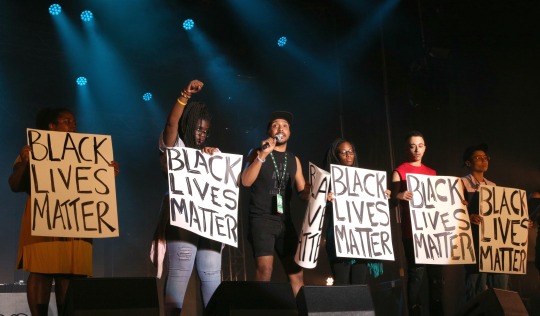
Photo credit: Valérie Bah i have been engaging with fierté montréal for a few of years now: writing letters, planning interventions, debating the vice-president of pride on cbc daybreak (!); i showed up to their community consultations and i made sure that concerns from local queer and trans communities of colour were being voiced, that our demands were being heard. a few months ago, fierté montréal invited me to be grand marshal at this year's pride; an offer which i declined for personal and political reasons, including that i did not want to have my Black trans woman identity be instrumentalized to cover up fierté's ongoing racist and transphobic actions and positions. yes, fierté montréal hired two staff of color (in an office of 30+ white people) to do outreach to marginalized communities, but as far as i was concerned: this was just the beginning of a very long process; fierté still has everything to prove, particularly given our history.
some of our demands had been met: there would be a POC-only safer space with an active listener on-site throughout the duration of pride, more artists and djs of colour would be booked for the festival, there would be a QTBIPOC bbq, but more excitedly: there would be a POC stage FOR THE FIRST TIME EVER!!

as an arts facilitator whose primary purpose in life is to create art and performance spaces for marginalized folks, i was beyond thrilled! a couple of years ago, having a by-and-for- POC stage at fierté montréal was unimaginable. it took a very long time and many generations of resistance to be able to have this stage: we earned it through protests, interventions, organizing and call-outs. but again, fierté montréal still had everything to prove: while we had claimed these spaces, would we be tokenized, fetishized, instrumentalized or harmed in in the process? on showing up for monday's QTBIPOC bbq (which was supposed to be POC-only, right?), we found out that the QTBIPOC bbq had been merged with the youth bbq (which was supposed to be youth only), to make space for a mainstream gay men's magazine, and defeating the purpose of having these "safer" spaces in the first place. we munched on our hot-dogs disappointed and disgruntled, but we also made the most out of the evening: there was still EXCELLENCE to come, the QTBIPOC stage! as the artists were gathering backstage, minutes before the show was about to start, we learnt that the spvm (montréal's police) HAD ENTERED THE POC SAFER SPACE (!!!), arrested a Black youth for smoking a joint while the park was full of white folks also smoking weed at that very moment. the police intimidated other trans folks of colour who were trying to engage with them, and they dragged the Black youth all the way across the park in handcuffs, all the while being physically and verbally abusive.
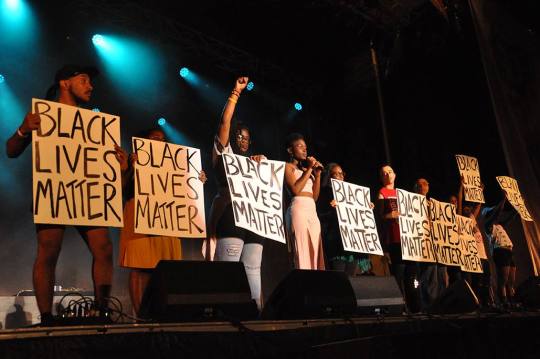
(the Black youth is safe now. with a strong support network. we are also raising funds to support this person as they take the time to heal: you can donate here or through e-tranfers to lamackerel[at]gmail[dot]com) this was not how we expected the evening to unfold. most of the artists backstage were Black and quickly staged an intervention to openly address what had happened and demand that our needs be heard and that our lives and bodies be treated with dignity. we were given a stage, we were given a mic, and we used it to voice the reality of our lived experiences and re-articulate that our needs and demands are dire. fierté montréal reacted immediately: they spoke with the spvm agents so that the youth be released without charges, and they issued a public apology, openly condemning the spvm for their action, blaming them for hindering pride's process of reconciliation with QTBIPOC communities. this was the very least fierté could do. backstage, everyone felt tense, broken, shaky, defeated, which was not the spirit in which we expected to be performing. and then there were all the QTBIPOCs who were in the audience, particularly those who had to witness a Black youth be arrested and dragged across the parc des faubourgs. [AND on top of all that, my co-host (also a Black woman) and I got harassed and bullied by a white cis male staff of fierté montréal backstage towards the end of the show!!!]
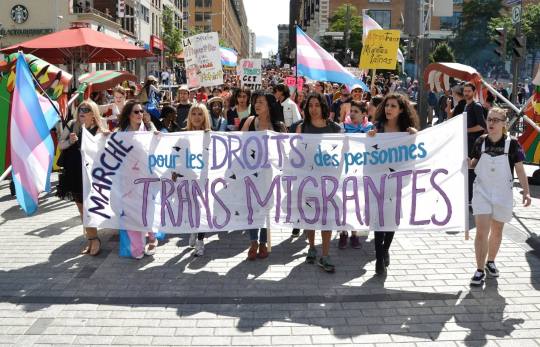
so fierté claims to want a process of reconciliation with QTBIPOC communities: when will fierté actually start listening to what we are saying? how many more incidents will it take? just a few weeks ago, fierté's vice-president said that he was excited that the military would be marching in the parade in uniform this year; everybody will feel safe because they will not be carrying any weapons.
two days ago, in presence of the mayor of montreal and the president of pride, the spvm apologized for the police raids on montreal gay spaces in the 70s, 80s and 90s. fierté montréal gracefully accepted the apology framing it as a positive step in the relationship between the police and lgbt communities, without naming or acknowledging that earlier this week a Black queer youth was arrested and mistreated by the police at a pride event, BECAUSE OF RACIAL PROFILING.
if fierté montréal is really listening to the demands of queer and trans people of colour, how come they still have not taken position on trans migrant rights in québec? (québec is presently the only province in canada that does not allow trans migrants to change their names or gender markers, not unless they become canadian citizens). montréal's trans pride, euphorie dans le genre, a grassroots by and for initiative, was dedicated to trans migrant rights. since pride started, i have witnessed at least 6 interventions at pride events from grassroots trans migrant organizers asking fierté to take a position in support of bill 895. how come fierté montréal still has not taken position? isn't fierté supposed to be advocating for all of us?
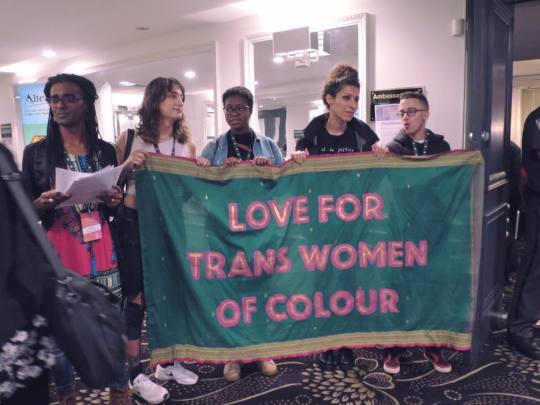
Photo credit: Adrianna Diaz
what happened at fierté montréal over the past few days is shameful and deeply harmful to QTBIPOC communities. we had to fight and beg, for years, to claim the small spaces that we did, to finally have our marginalized voices be heard. and even these small spaces that were supposed to be safe for us were rife with violence. so i urge fierté montréal to do better. if the organization claims to genuinely want a process of reconciliation with queer and trans indigenous, black, people of colour communities, then do better. and actually listen to us. and believe us. [i want to express my gratitude to my co-host, Tasheka Lavann, to the artists who shared the stage and allowed the Black Lives Matter intervention to happen, Lucas Charlie Rose, Ms Holmes, Karine Constant-Déjean, Panthera Whyz, The House of Mugler, Hua Li, Shawnee, Jason Maek & Zaena. gratitude to the QTBIPOC friends and volunteers who handled the situation, supported us and each other in that process.
Jodie-Ann and Naja for being such fierce and resilient warriors.
Ed, Dalia, Betty and all the other queer and trans folks of colour leading the trans migrant rights campaign. of course, gratitude to all the QTBIPOCs in this city holding it down, and to all our elders without whom our lives would not be possible.]
227 notes
·
View notes
Photo

Okay, before I rant today, I want to make one thing super clear. America Chavez is fucking rad.
Okay, that being said, I’m not a Marvel fan. I never really have been, I never reallitey will be. I’ve seen all the MCU movies, I’ve read comics, I’ve seen all of the Netflix series. I grew up with Marvel.
It wasn’t until I became a sarcastic adult that I really took notice with Marvel’s painful lack of diversity. Sure, we’ve always had nonwhite heroes, but they’ve always taken a backseat to the more well established (and cis white.) heroes.
Growing up as a nonwhite, it used to piss me off not seeing any real representation in comics. It still does. Sure, we have awesome diverse characters now, but they don’t get the kind of love they deserve. (and by love, I mean equal representation.)
I’m sure Marvel’s little “People don’t want diversity.” excuse for slumping sales has been beaten like the dead horse it is, but still. This should not, in any way, be an issue at all. But then again, our president is a racist scumbag with a legion of nazi followers so what do I know?
I feel that the problem lies with the way comics treat diversity. They’re still stuck in a reality where whites are supreme, and nonwhites are as rare as unicorns. God forbid if they happen to be trans or non-hetero. That’s not the world we live in. Is it an escapism thing? Are comic reflecting an ideal world where this IS the norm?
I am singling out Marvel here, mainly because of their asinine statements and also because they’re more visible than other companies, but I’m not letting DC off the hook either.
I picked up America #1, and honestly, I wasn’t terribly impressed. I love the character, but the book seemed a little too “Hey everyone! She’s queer and Latina! ISNT THAT COOL?”
It IS cool. Very much so. Amazing too. But I tend to be VERY on edge about how LGBTQIA characters especially are represented in any media. (I mean, I am a trans woman of color.)
18 notes
·
View notes
Text
let me tell you something about the women’s march on washington
I want to preface this by saying that, as someone who did go to the march, that to see so many people across the nation emboldened to mobilize against a common cause is always inspiring. activism through protest serves a very important purpose of grabbing attention and disrupting the status quo, which is necessary if one wishes to encourage change.
that being said, you need to want to wake up the morning after the women’s march on washington and actually want to fucking do something.
it’s funny because this election is the first time in my lifetime that i’ve ever seen so many white women vilify a leader who is a direct threat to my safety, meanwhile white women simultaneously came out in droves to vote for that very same leader. as a queer women of color, that’s highly fucking suspicious to me.
i’ve never felt solidarity with white women. i was one of a handful of POC scholarship kids at a rich nyc all-girls prep school covered in murals of white suffragettes and filled with the entitled daughters of fortune 500 men. i learned quickly that the majority of those girls did not know my struggles as a queer WOC and did not care to learn. years later, this has not changed.
so you know for damn sure women of color noticed when those same white women created the “Million Woman March” and decided to co-opt the 1997 Million Woman March that was marched by and large by black women and made possible by the labors of black people. now the name was changed to the “women’s march on washington” and you had a bunch of really amazing ass women of color signing on as co-chairs (look up Tamika Mallory, Carmen Perez, and Linda Sarsour, please) but i bring this up to say this.
white women who are new to caring about social issues because of this election need to stop pretending they care or wake the fuck up. because i have zero patience for women who are over here marching to defend the kind of white feminism that fucking failed women of color and elected trump in the first place and then are quick to turn around and start criticizing the black lives matter movement. i have zero patience for women who are fucking wearing safety pins out of “solidarity” and are actively vilifying the existence of queer and trans women, esp. queer and trans women of color.
i have zero fucking patience for white women who attended this women’s march today, and are now going to go home, put their feet up, and not do anything else for the remainder of this presidency while not giving a shit about people who don’t slot themselves into their convenient brand of white feminism. because, no, protesting and holding up signs isn’t going to do shit if it’s not followed up with actual action and inclusivity.
give a shit about women of color. give a shit about queer women of color. give a shit about the people who have been fighting for rights, dismantling the status quo, organizing strikes, and affecting policy long before you. rule number one of activism is to know why you are choosing the form of action you are. if you are showing up to the women’s march because it “feels right” and it’s “cool and trendy” and not because you have a commitment to being an agent of change, then you’ve missed the whole point.
liberal white women: i fucking see you. and you have a hell of a lot of work to do to convince me that you are here for me and not just for your white, cis, het, able-bodied christian friends.
118 notes
·
View notes
Text
A Call for Empathy, or, How Stories Can Help
On this day, 75 years ago, the President of the United States issued an executive order requiring approximately 120,000 Japanese Americans (of which, about 80,000 were born on American soil) register with the US government and report to assembly centers. Subsequently, they were shipped with only what they could carry to internment camps, where they stayed until said camps were dismantled after the end of WWII. They were given days to sell off their businesses, properties, and life’s work. They lost their rights as American citizens, and became prisoners without trial.
Switch to our current political climate: we have a president who refuses to sell his empire claiming it would not allow him to get the full value of all of his assets. This man also supports reinstating internment camps, this time for Americans who identify as muslim. He would like these people to sell off all of their businesses, properties, assets, in a number of days, as we did to our Japanese brothers and sisters 75 years ago, but he will not sell off his own given the ample preparatory time he had through his campaign, nomination, and victory?
I am sad to say that much of the struggle of Japanese Americans I have only just started learning about. My white privilege has allowed me to turn a blind eye to this part of our history for much of my life. I grew up on the east coast, surrounded by few Asian Americans, and did not bother to learn more than what history classes offered on this topic (which is abysmally small). I am lucky to have a friend who has made it a part of her life mission to educate people on the history of her immediate ancestors, which is fascinating and beautiful and full of love, and more broadly on the history of Japanese people in America.
One night she recently recommended a book to me (read: she placed this book in my lap and told me to read it): When the Emperor was Divine, by Julie Otsuka. It is a small book, and if I were to read it over again I would want to read it all in one sitting. Instead, I read it parceled out over a week; 30 minutes on the bus, 15 minutes before bed. I was struck by my flashbacks to all of the Holocaust books I was required to read growing up in school, but could not recall a single required reading about Japanese internment from an english class. Here is this woman, an American woman, writing so beautifully about tragedy in our own country that I’m sure most Americans, unless they are Japanese, know little about.
Through this book I expanded my knowledge of Japanese internment from the perspective of one fictional family. Our country separated families, disrupted lives, isolated people, and fundamentally changed them through internment. It was a racially charged order that played on people’s fears that “a Jap’s a Jap” and that “anyone of Japanese ancestry in the U.S. had to be rounded up simply because Japanese racial characteristics made it impossible to distinguish ‘the sheep from the goats’ — no matter how much time was available.” Through the miseducation of our people (myself included) -- by leaving out the true horrors that we committed -- we are convincing people that it is fine to do again, despite ample evidence that came to light that this should not have happened. Our government
Though it may seem like it, I am not here to lecture people into what to believe. I am here to recommend empathy. Empathy was a word that I needed to learn in 5th grade for social studies. I remember learning that it was not sympathy, though it sounded similar. We can feel sympathy for someone without feeling empathy. To feel sympathy is to feel bad for them. To feel sympathy will not make you want to help change or dismantle the systems of oppression they have experienced. To feel empathy is to put yourself in their shoes. It is to understand something from outside of your own perspective. To empathize is an education in the lived experiences of those unlike yourself. And very often, if we can truly feel empathy for others, we will want to raise the bar on how these people are treated because we would not want that for ourselves. My friend who recommended the book to me was smart. She knew she could tell me about Japanese internment all day, but to even have a true sliver of understanding, I would need to start reading about the human condition of the events, and she acted on that quickly.
NPR recently recommended that to understand why Trump won the election, we must read books stemming from the areas in which he had concentrations of voters. This is because reading teaches us empathy. It literally shows us the perspective of another, it shows us their world through their own lens, it grabs us and carries us along, and teaches us what it means to live life through another perspective. At the same time, it can be familiar because it engages our own imagination, and allows us to consume it on a personal level that speaks to our truth in addition to our own. All of this is safely done without engaging in conversation with someone else, which means we don’t need to ‘win’ the conversation, and thus we are free to let our guards down and truly hear an outside perspective.
I too, would like to recommend reading as a way to gain this empathetic perspective. I believe that a huge reason that I am who I am today is because of the diverse collection of books I poured over growing up. But when you read, consciously read books about those who are unlike yourself. Are you a man? Read about women. Are you comfortably middle class? Read books about working class citizens, hell, read about wealthy citizens. Are you cis? Straight? Read about trans, or those who fall on the LGBTQ spectrum. Are you white? Christian? Read about POC’s. Read about Muslims. Make it about understanding this so-called enemy that our president wants us to treat as less than human. Read, and using your new level of empathy for these populations, look at the political rhetoric we are seeing and hearing from this administration through their eyes, and tell me you still stand by those decisions.
For those who already engage in the act of empathy through reading, I pose a question: What books have you read that opened your eyes to a historical moment or worldview of “others” that you had no idea existed, or knew little about?
1 note
·
View note
Text
Contributor Interview with Carol Guess and Aimee Parkison

Carol Guess is the author of numerous books of poetry and prose, including Darling Endangered, Doll Studies: Forensics, and Tinderbox Lawn. In 2014 she was awarded the Philolexian Award for Distinguished Literary Achievement by Columbia University. She teaches in the MFA program at Western Washington University.
Aimee Parkison is the author of Refrigerated Music for a Gleaming Woman, which won the FC2 Catherine Doctorow Innovative Fiction Prize. She is the director of the Creative Writing Program at Oklahoma State University and has published four books of fiction.
In your cover letter, you said “Girl in Dog House” is part of a larger manuscript comprising “stories about girls in captivity and confinement.” What did you discover about this story and the manuscript’s themes through the writing process? How do you see this story in conversation with the others?
Aimee Parkison: In many ways, women are confined and held captive by society. The deeper Carol and I went into the project, the more I was surprised to see how many different types of captivity our characters (the “girls”) were dealing with — the captivity of victimhood, the captivity of the body, the captivity of the law, the captivity of stereotypes, the captivity of romantic love, the captivity of self-image, just to name a few. All these captivities revealed themselves in real and surreal ways, both metaphorical and literal.
Carol Guess: Aimee’s absolutely right — this project felt like digging a hole and watching the ground around it crumble. Everything just began sliding into these stories; the question literally became what to leave out. What elements of women’s lives aren’t confined? What does freedom look like? I think towards the end of the project we were asking that question. Maybe that’s the basis for our next collaboration!
I’m pretty sure this is the first collaborative story NDR has ever published. What struggles did you encounter that have been unique to the co-authoring process? How did you overcome them? What did you learn?
AP: This project was my first experience with collaboration in fiction. I’ve written a screenplay as a collaboration before, but never a book of fiction. Both times, the process was fun and exciting, magically disappearing that very stressful/sad part of writing, which is a feeling of being alone and on your own in a vacuum. Collaboration doesn’t allow for that sort of isolation, since there is so much friendship and fun to be had in discovering how your collaborator inspires you to create in new ways, sort of the merging of two minds, which always produces something different than a single mind would.
It reminds me of what the surrealists used to say about creating art — that art should be made by all, that art relies on the creative unconscious, and that every group has it own creative unconscious. Group creative unconscious is true for collaboration.
But, there are struggles unique to co-authoring. There has to be a lot of trust, and you have to learn what works and what doesn’t as a team.
One of the biggest challenges in any collaborations is figuring out the rules and rhythms of the process. Carol and I started out by brainstorming about the creative concept of the book, and then we agreed on some basic “rules” of the process. Carol was great with this aspect of setting up boundaries, which allowed for maximum respect and creative freedom, since she has had so much experience in writing books collaboratively. So, I’ll let her talk about those rules and the process, as well as the foundation to setting some boundaries while allowing for creative freedom.
CG: Thanks, Aimee! First let me say what a great collaborator Aimee is, and what a wonderful friendship we forged out of this process.
I’ve written a number of books in collaboration. There’s no one way to work; I make it up as I go. Flexibility is the most important rule as you adjust to each other’s unexpected strengths and weaknesses. However, these are some typical ground rules:
— Start with a clear project, including structure or theme, so you’re writing toward the same goal. — Determine whether you’ll co-write each piece (writing half and passing it along), or write call-and-response pieces individually, or craft your own method. — Leave each other’s words alone (unless something you do to a piece requires revising earlier material for consistency and voice). — Treat your collaborator as a peer and expect to be treated as a peer. Remember that you’re not editing or critiquing each other. No one is giving or getting advice. — Share expectations about time and process up front. For example, if you write really fast or need extra time, say so, and decide how you will proceed in advance. — Be playful. Set challenges, leave lines and characters open enough that your collaborator has somewhere to go. Don’t hand them a locked box. What you give and receive should be really strong, but also have an unfinished quality, so you can finish each other’s sentences. Take turns being the person to start and finish things, because those are very different strengths. — Be supportive. You are not in competition; their success is your success, and their challenges are your challenges. You aren’t trying to beat this person; you’re in it together. — Determine pragmatic rules for things like sending out work, ownership of individual pieces inspired by the project, goals that signal success, and things you disagree with.
Presenting the hoarded cats and dogs right at the beginning makes for such an effectively disquieting start to the story. But, in addition to how arresting these images are, they also connote themes that become imperative to the story: vulnerability, confinement, separation and cruelty. How do you go about developing such striking, multivalent images?
AP: This particular story was a call-and-response process piece. (Carol and I had many ways of writing the material for our book—some pieces as solo works, some pieces as call-and-response works where one of us would send a beginning to the other to finish, and other pieces emerging as something in between.) I started “Girl in Dog House” with pet hoarding and the puppy holes and then sent it to Carol and was (as always) surprised by the direction she took it. When I started with the pet hoarding, I wrote it as a strange trait, but slightly endearing in its longing for connection, even if confining to the pets and the person. Carol brought a deeper twist when she connected the idea of pet hoarding to the sort of isolation and cruelty that leads to violence.
The narrator feels largely disconnected from her parents and other people in her community, barring Sadie. But, in opposition to the "damaged girl" trope, the story doesn't portray the narrator as overly helpless or victimized. What advice would you give to writers interested in depicting girlhood, particularly in relation to girls navigating a society that is oftentimes hostile to them?
AP: Writers can avoid melodrama and sentimentality by remembering that all people, even “damaged girls,” have power and agency. Not everyone who is victimized has to live her life as a victim, but society’s hostility to certain women and girls is part of a cultural reality that involves many complicated realms of feeling, being, seeing, and surviving. This is why such stories are necessary.
CG: When we began this project, we couldn’t anticipate the power of the “Me, too” movement — speaking only for myself, I’ve found it empowering to watch women speaking out and claiming agency. It’s true, the movement has mostly opened the door for more privileged women and is often framed in the negative — often about the injustices men have done to women and less about women’s power, resilience, creativity, and agency. At times the “Me, too” framework ignores the voices and history of women of color, trans people, queer women, and cis male allies who have fought for so long. We need more context for what we see on the surface when we read articles about straight white cisgender female movies stars who have experienced abuse, but whose lives are nonetheless shaped by privilege. Still, I recognize our project in dialogue with this complicated historical moment, with the endlessly triggering headlines about men in power who have used privilege to coerce and control; with women speaking truth to power; with women and men telling stories of courage and resistance. And all of this is also in dialogue with the paradigm shift around gender happening in and beyond the queer community. And of course, our book speaks at every turn, not so much to “damaged girls,” but to our country’s victimization at the hands of a ruthless, abusive presidential administration determined to collect power and resources in the hands of a few, and willing to risk the lives of every living creature to do it.
This project started as a way to explore our mutual obsession with abducted girls. But it became so much more than that. I feel (again, speaking for myself) captive and confined by President Trump and the straight white cisgender men who surround him, who protect him, who enable his violence and his unbridled power to trample human and nonhuman rights; to destroy the environment; to warp the meaning of the constitution. For me, confinement now means something entirely different than it did a year ago. And it’s no longer just about girls, but about humans and animals and even plants. Yesterday I read a heartbreaking article about a woman whose horse burned to death in one of the California wildfires. This is about every living creature on the planet; we are literally burning to death. I can’t overstate the terror of this political moment, and the way that shaped, for me, writing these stories.
I'm especially interested in Sadie's role in the story, how she is the only character that has any intimate contact with the narrator sleeping "head-toe on the sofa." Additionally, she is integral in the story's violence, teaching the narrator to shoot and binge watching "the bloodiest shows on tv" with her. What did you hope to accomplish in creating her character? How did you go about balancing the violence and tenderness?
CG: Thanks for picking up on the importance of Sadie’s character. You answer the question yourself when you say, “balancing violence and tenderness;” that was my goal with Sadie. I tried to let her be an ambiguous character; my vision of Sadie is that she’s a mentor, a guide for the narrator. She’s a safe and healthy adult. As I intended it, Sadie isn’t actually teaching her to shoot; Sadie’s just teaching her to brush her teeth. But the narrator puts Sadie in with the other, dangerous adults because she doesn’t know how to engage with someone who actually shows tenderness. However, I wanted it to be possible to read Sadie as dangerous, too — as the person who would push the narrator toward violence. The other adults (the mom, the dad) are dangerous because they’re neglecting their child. They aren’t actively dangerous; they’re passive, neglectful and careless, with potentially deadly results. Like keeping guns in the house that a child could easily access. Like ignoring her distress.
With Sadie, the narrator experiences compassion and warmth (and yes, she’s the only person showing the narrator any physical affection). But there’s this hint that maybe Sadie is also the only active adult in the narrator’s world, and might lead the narrator astray. I tried to create two Sadies: one dangerous, potentially pushing the narrator into violence; and one loving and compassionate, who the narrator feels safe with, but can’t fully understand. Is the narrator in danger with Sadie, too? Is Sadie really teaching her to shoot a gun, saying aim to kill? Or is Sadie joking around with an electric toothbrush, unaware that the narrator has access to guns? Does the narrator see safety and cast it in violent terms (e.g. sees the electric toothbrush as a weapon) because she’s never known anything else? And this goes back to Aimee’s genius in writing puppies into the walls – what’s real and what’s magical? What’s actually happening? We tried with most of the stories to create multiple levels of interpretation, both a literal level (often representing abuse and danger) and a magical level (where nothing is as it seems). In this way we called on fairy tales and fables, as well as magical realist writers who have long used the genre to represent cultural and political critiques.
0 notes